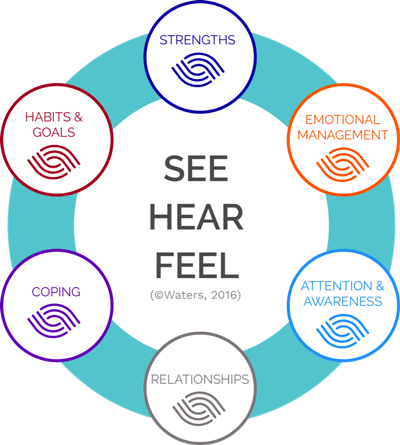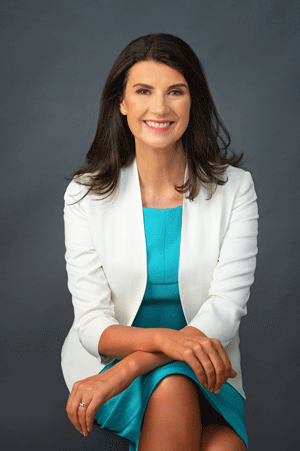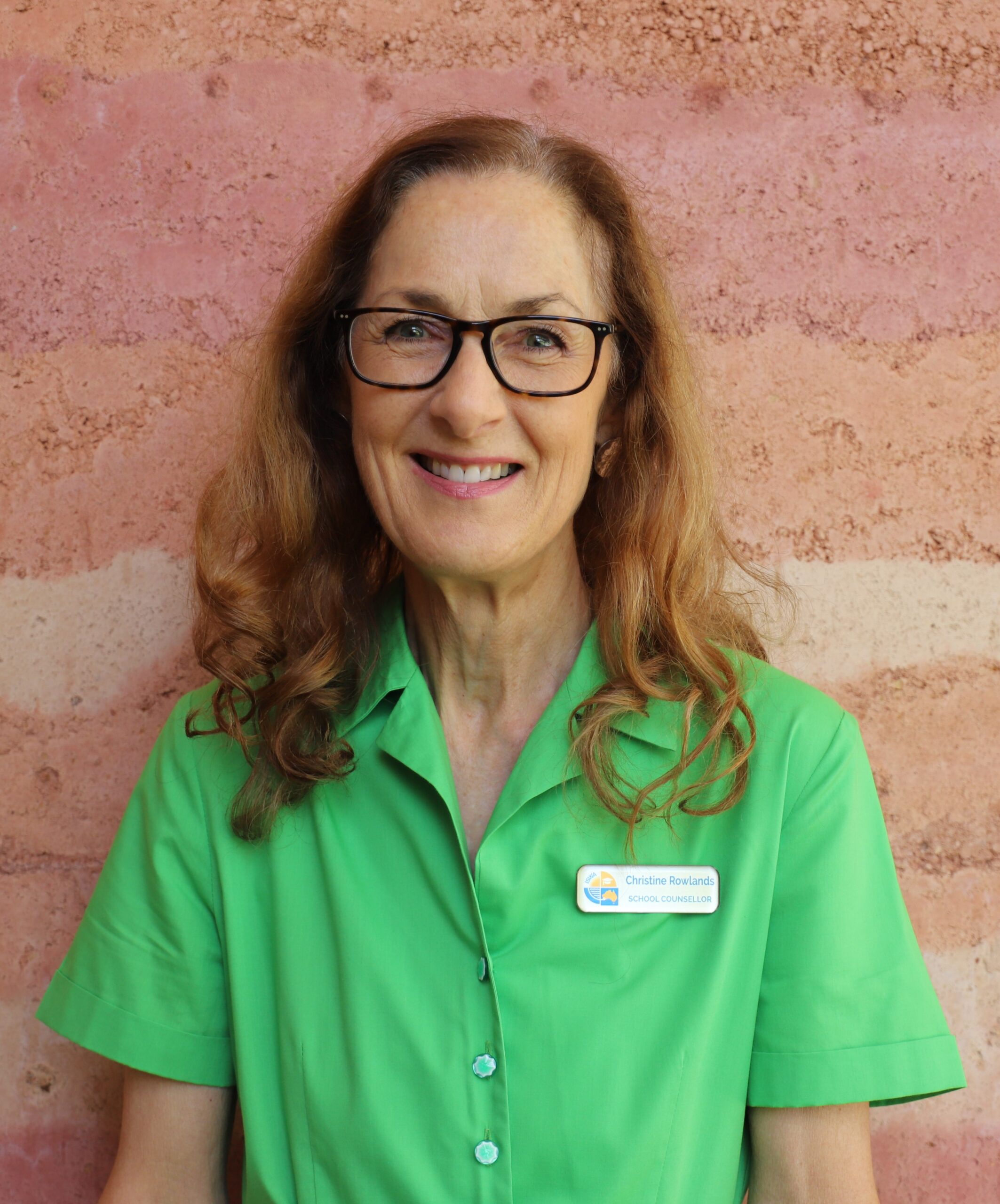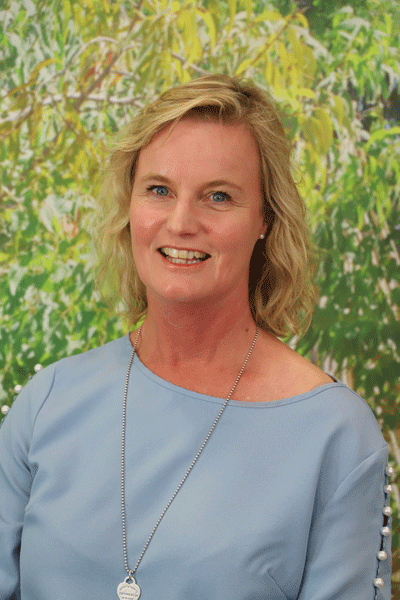193 St Brigids Terrace
Doubleview, 6018 WA
+61 8 9285 1144
Reception
Mon - Fri: 8:00 - 16:00
Term School Hours
Doubleview, 6018 WA
Reception
Term School Hours
Home > Student Life > Student Wellbeing
Wellbeing is a condition of flourishing where we thrive in various ways. It’s not as simple as striving for happiness, rather it encompasses many elements, such as forging meaningful relationships, applying our strengths, having a purpose and contributing to our wider community. A strong sense of wellbeing underpins sound mental health, ensures we stay resilient and that we can realise our potential.
The pursuit of wellbeing is centuries old and has always been a fundamental tenet of everything that occurs at ISWA. Our ‘Purpose and Commitments’ are a testament to our beliefs. Last academic year, a strategic decision was taken to invest in the ‘Visible Wellbeing’ (VWB) programme designed by Professor Lea Waters (PhD), an expert in this field.
VWB combines the science of wellbeing with the science of learning and teaching so that wellbeing is visible across the school. VWB is not a prescribed curriculum, but a set of flexible practices that can be applied in any subject, and in all contexts both within and without the classroom. Waters’ SEARCH framework was developed from her longitudinal research incorporating 16,000+ psychology papers and includes six pathways that support and enhance a student’s wellbeing. It is an evidence-based framework and is being continually refined through her collaboration with schools across the globe, such as in Australia, Canada, South Africa, The Netherlands, India, Belgium, Hong Kong, the United Arab Emirates, China, and New Zealand.
VWB brings together Professor Waters’ three areas of expertise – positive psychology/education/organisational psychology – to create a sustainable wellbeing approach to:
The VWB Science
 Visible Wellbeing is the culmination of 20 years of high-impact research in psychology and education conducted and published by Professor Lea Waters.
Visible Wellbeing is the culmination of 20 years of high-impact research in psychology and education conducted and published by Professor Lea Waters.
At the core of VWB is the SEARCH framework, developed by Professor Waters from her large-scale bibliometric analysis of over 18,000 journal articles across 700 psychology and educational journals. The SEARCH framework is being delivered at ISWA by Lea and her team of trained facilitators, Laura Allison and Claire Fortune to bring wellbeing to life in practical and accessible ways. SEARCH covers the six over-arching pathways to wellbeing as shown in the figure below.
Dr Lea Waters
 Order of Australia recipient, Professor Lea Waters holds a PhD in Organisational Psychology and been a psychology researcher at The University of Melbourne for 27 years, initially in the Business Faculty and then moving to the Melbourne Graduate School of Education in2009. Professor Waters was the Founding Director of the Centre for Positive Psychology at the University of Melbourne and is a world leader in this field with over 120 research publications. She is the only Australian to have been President of the International Positive Psychology Association and has been the Ambassador of the Positive Education Schools Association for a decade.
Order of Australia recipient, Professor Lea Waters holds a PhD in Organisational Psychology and been a psychology researcher at The University of Melbourne for 27 years, initially in the Business Faculty and then moving to the Melbourne Graduate School of Education in2009. Professor Waters was the Founding Director of the Centre for Positive Psychology at the University of Melbourne and is a world leader in this field with over 120 research publications. She is the only Australian to have been President of the International Positive Psychology Association and has been the Ambassador of the Positive Education Schools Association for a decade.
Our VWB Journey
Visible Wellbeing has been endorsed by the South Australian Department of Education and is listed on the SA Schools Mental Health. It is also on the Victorian Department of Education Schools Mental Health Menu and is approved as an evidence-based program by ‘Beyond Blue.’ Lea’s book ‘The Strength Switch’ has been translated into 10 languages, including Chinese, Japanese, Korean, Taiwanese, Hungarian, Arabic, Spanish, French and Russian. Lea has written for The Wall Street Journal, TIME, The Atlantic, and The Guardian, and her work is featured in The New York Times, The Washington Post, The Toronto Globe, Huffington Post and Vogue.
We began our VWB journey at ISWA by surveying all constituents. We analysed feedback to determine our baseline knowledge around wellbeing and gauge our school’s understanding of wellbeing against the domains in the S.E.A.R.C.H. Subsequently, staff embraced all facets of VWB and it is now woven into the fabric of our school. Our VWB Implementation Team model initiatives and takes the lead at planning creative and age-appropriate strategies. Whole staff PD days have been dedicated to ongoing learning and consolidating of VWB. Additionally, Lea has addressed parents and worked with student leaders to analyse ‘What makes a flourishing school?’ The VWB language and philosophy are now integrated into life at every level, including lesson planning, Home Room sessions, assemblies and our co-curricular offerings. We can reference the comprehensive resources accessible to us as a Visible Wellbeing school. Articles shared as part of the weekly ISWA Newsletters reiterate the primacy of place wellbeing continues to hold at ISWA and we even begin each Monday staff briefing with a wellbeing ‘Tip of the Week’. Visitors to our school would see tangible evidence of our unified commitment to what we believe is a fundamental aspect of schooling. We are proud to be a VWB partner school and for the chance to continually refine our practice.
Our Counsellor
 Chris joined ISWA in August 2021 after working for 22 years in a large, international IB secondary school in Hong Kong, where she was a Vice Principal responsible for inter alia, wellbeing, pastoral care, child safeguarding, professional development and the supervision of the counsellors and social workers. She delivered teacher training in an array of mental health issues, parent-led workshops and initiated both the social-emotional and the relationship and sexuality curriculum.
Chris joined ISWA in August 2021 after working for 22 years in a large, international IB secondary school in Hong Kong, where she was a Vice Principal responsible for inter alia, wellbeing, pastoral care, child safeguarding, professional development and the supervision of the counsellors and social workers. She delivered teacher training in an array of mental health issues, parent-led workshops and initiated both the social-emotional and the relationship and sexuality curriculum.
Chris has held senior positions in independent schools in Canberra, Perth and Japan. She taught English and Theory of Knowledge for 30 years and is a passionate advocate for young people. She holds a Masters in Educational Management, a Masters in Counselling and is excited to be sharing her skills and knowledge with this community. She is a fervent believer in the power of education and life-long learning, a lover of travel and reading, and she is grateful to be working in partnership with Susan Wilson and her Student Support colleagues.
Our School Psychologist
 Sue Wilson recently joined our school community in May 2023 and is passionate about working with students and families to support young peoples’ academic, social, and emotional wellbeing.
Sue Wilson recently joined our school community in May 2023 and is passionate about working with students and families to support young peoples’ academic, social, and emotional wellbeing.
She has over 25 years of experience working as a school psychologist in school settings, both independent and government, as well as co-ed and single-sex schools. Her last appointment was for thirteen years in a large independent school in Perth, and prior to this, she worked at schools in Melbourne and Brisbane as well as spending time in London with her husband’s work, taking time away from her profession to raise their two children.
Sue appreciates the challenges facing young people as they navigate the modern-day world to achieve their personal, social and academic goals. Young people can easily become consumed by an imbalance of social media, online gaming and constant access to information at their fingertips, affecting their sleep patterns and emotional development. Now more than ever, a significant component of a counsellor’s role is to teach resilience and emotional regulation skills so that young people have the coping tools to navigate a more balanced approach to life and their chosen future.
Sue has a Bachelor of Psychology and a Diploma in Education. As a school psychologist, Sue’s role will be to support young people’s mental health and emotional and social challenges by providing consultation, counselling and group work. She will work closely with teachers, administrators, and other support staff to ensure our students receive the best care and attention.
We wish to acknowledge the traditional custodians of the land we are on, the Whadjuk (Perth region) people and pay our respects to their Elders past and present. We acknowledge, respect and seek to learn from their wisdom, continuing culture and the contribution they make to the life of this city and this region.